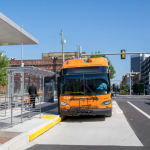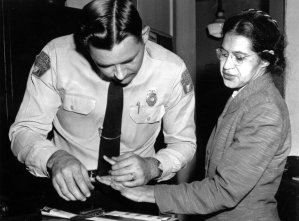By Ryan Michaels
The Birmingham Times
One area of regional cooperation that can link together the metro area should be transportation, said Birmingham City Councilor Darrell O’Quinn.
There is an ongoing conversation to bring greater unity to the transit operations in the region around Birmingham, and he hopes that it brings results, the councilor said.
“For efficiency’s sake, [transit] really ought to be housed in one organization, and I think that there needs to be a conversation amongst Jefferson County municipalities and the [Jefferson] County Commission about having a true regional system that serves the entirety of Jefferson County,” he said.
The councilor pointed out that in Jefferson County, there are actually two transit agencies, the Birmingham-Jefferson County Transit Authority (BJCTA) and ClasTran, which also operates in Shelby County. For disabled, elderly or rural residents, who may not have access to fixed-route public transit, ClasTran provides $4 one-way trips from home to destination.
In practical terms, O’Quinn said, the two agencies operate in the same area. “What that looks like is that you have BJCTA and ClasTran passing each other on the same streets,” O’Quinn said.
Having all transit under one organization would enable smaller municipalities like Brighton and Lipscomb to have greater access to transit capacity. Microtransit like Via could also be a good fit for those areas, he said.
“In those places where the ridership numbers are going to be pretty low anyway, [microtransit is] just a more efficient option than trying to get 40-foot buses on a fixed route out there on a fixed schedule,” O’Quinn said.
Via is a global provider of transit software that was founded in 2012 and is headquartered in New York City. Via’s software enables transit agencies and municipalities like Birmingham and BJCTA to provide low-cost, on-demand public transportation services, which are designed to extend the reach of existing mass transit offerings.
Via, which provides $1.50 rides for residents in certain areas previously stopped operating after 7 p.m., but per the terms of BJCTA’s new contract, the service now operates until 11 p.m. and in a larger service area than the prior one.
During the nighttime service, the coverage now stretches as far as Forest Park to the east, as far as Acipco-Finley and Evergreen neighborhoods to the north, as well as to a significant amount of West Birmingham, including Arlington-West End, Central Park and Ensley Highlands.
The service that companies like Via deliver has become popular for transit agencies across the country. BJCTA’s agreement in November is the first one for the agency, but the program had been operating exclusively under the direction of the City of Birmingham since 2019. Also, placing BJCTA in charge of microtransit like the Via ride service would move toward a greater unification of public transit in the region, which is “the conversation that we really need to be having,” O’Quinn said.
Charlotte Shaw, president and CEO of the BJCTA, said she is also currently in discussions with ClasTran to keep from running the same routes.
Shari Spencer, executive director of ClasTran, said since both her organization and the BJCTA serve the same populations, it’s important that they work together.
“The collaborative approach provides opportunities to streamline and expand services and stretch available dollars to serve our citizens, including providing critical mobility services to our vulnerable populations,” Spencer said.
“We look forward to a continued partnership as we collectively look for growth and development opportunities to sustain and grow services in our communities,” she added.
Additionally, Shaw said she would like to offer ClasTran to co-locate at the BJCTA’s new maintenance center, which is currently being planned.
“I’m really looking at how we can collaborate too with ClasTran, so that we’re not duplicating areas, especially in this work shortage, and we’re actually in discussions with them now. We’ve had several meetings, and we’re going to continue, the first of the year, [to talk about] how well we can work together,” Shaw said.











